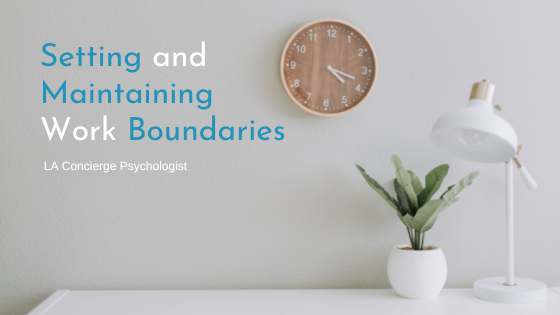The American Psychological Association recently published research indicating that perfectionism in our young people (e.g., adolescents, emerging adults) is on the rise. This doesn’t surprise me at all, as I’ve worked with numerous teens and emerging adults struggling with perfectionism. It seems to be especially prevalent in the high-achieving families and private schools in Los Angeles.
The Damaging Consequences of Perfectionism
I probably don’t need to espouse all the dangers of perfectionism… you’ve likely seen the repercussions, either in yourself or your child. Perfectionism is associated with depression, anxiety, eating disorders, and early death. Basically, it’s the secret ingredient for a miserable life.
Where Does Perfectionism Come From?
There are numerous hypotheses about where perfectionism originates. The simplest answer is probably: it depends. Each individual I’ve worked had differing reasons (or combination of reasons) for their perfectionism. One researcher suggested that social media plays a part in perfectionism. This makes perfect sense if you think about it. Now we can spend hours observing other people’s (curated) lives on social media, and we’ll inevitably end up making some comparisons.
Other research suggests that the competitive market and rise in meritocracy is contributing to perfectionism. In such a competitive market, there’s intense pressure to prove that you’re the best candidate in order to get a good job and secure financial independence.
Perfectionism is also associated with certain kind of personality characteristics. People who are perfectionists tend to dislike novelty. They also tend to be more dependent on external reinforcement (e.g., rewards, praise from others). Additionally, perfectionistic people are great at persisting towards a goal in the face of exhaustion or frustration.
Another source of perfectionism I’ve seen in my own private practce is the need to be cared for and accepted. Individuals, consciously or not, believe their self-worth and lovability is linked to their achievements and ability to be perfect. They believe that people will reject them or love them less if they cannot perform “up to standards”.
Tools to Manage Your Perfectionism
Not all of these tools will work for everyone, but here are some commonly used tools to manage perfectionistic behavior:
Directly Challenge Perfectionistic Thinking
Don’t buy into your self-critical thoughts or catastrophic thinking. Instead of accepting this self-talk as automatically true, practice challenging those thoughts. For example, you might think that if you don’t spend five hours on your power point presentation for work, it won’t be any good, and you’ll be overlooked for an upcoming promotion. Instead of letting that thought run amok in your mind, challenge it by instead thinking, “My work track record is pretty stellar, and my presentation is pretty good. Plus, my supervisor won’t even bet there for my presentation!”
Engage in Self-Compassion
People who are perfectionistic tend to be self-critical. They believe this self-criticism is needed to keep them motivated to achieve. This may be true, but it also erodes a person’s sense of worth and well-being. Instead, try to engage in self-compassion. Treat yourself as you would your best friend. Remember that being imperfect is part of the human condition. And try to experience your anxiety about imperfection without judgment and being swept away by the anxiety.
Keep Things in Perspective
Perfectionists sometimes get bogged down in the details in an effort to make everything perfect. Does the exact font you use for your presentation really matter? Probably not. Sometimes it helps to ask yourself a few questions to those details that are driving you crazy into a little perspective. Try asking yourself the following:
- What’s the worst that could happen?
- If the worst happens, can I tolerate it?
- Will this still matter tomorrow, next week, or next year?
Slowly Let Go of Perfectionistic Standards
It’s unreasonable to go from striving for perfection to settling for “good enough” the next day. Think of reducing your perfectionistic standards as stepping down some stairs. The first step might be spending four hours working on your presentation, instead of five hours. The next time, maybe you’ll only spend three hours and so on. As you slowly let go of those unrealistic standards, you’ll also probably begin to realize that nothing horrible is happening as a result.
This is probably the hardest thing to try. Try to remember that lowering your standards doesn’t mean you’ll have no standards. You’ll still continue to put out quality work, but it will no longer cause you undue stress or prevent you from finding some work-life balance.
Practice Being Imperfect
This probably sounds like an insane suggestion, but it’s actually quite genius. If you set out aiming to make mistakes and be imperfect, then the thing you’ve been so afraid to do actually becomes a success! Also, when we avoid things, we give it all the power; the relief we feel from avoiding things further reinforces avoiding it, and the vicious cycle goes on. By intentionally making mistakes, it takes all of the power away from that fear of making a mistake. Additionally, as you experience being imperfect and making mistakes, you’ll probably realize that you’re resilient enough to tolerate imperfection. Plus, you’ll probably realize that horrible thing you imagined would happen if you messed up actually doesn’t happen. That’s definitely a win-win-win-win!
Click here for more information on executive coaching.
Is perfectionism causing you strife? Send us a message or book a free 20 minute consultation call with Dr. Barajas or Dr. Goldman to see how we can help.





